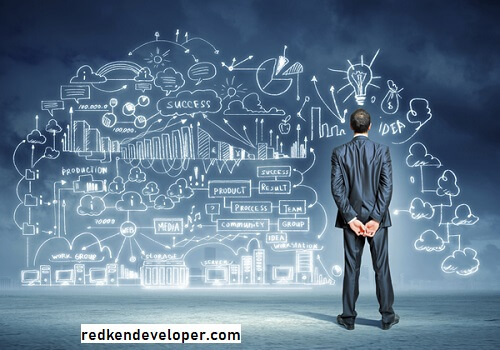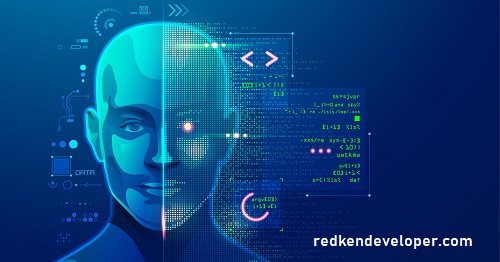The Future Development: Charting the Course for Progress:
Development is a fundamental idea in human growth, regardless of the context—technology, economy, or society. Looking ahead, we can see that the way progress is changing will drastically change our environment. The future is full of possibilities, ranging from new methods to societal development to paradigm upheavals in the economy and technology. This article explores the implications of these possible changes for the global society as well as how they can affect our lives.
Technological Progress: The Upcoming Frontier:
The Future Development:
Development is still primarily driven by technology. Future developments are expected to be even more revolutionary, with biotechnology, quantum computing, and artificial intelligence (AI) at the forefront.

- Quantum Computing: A breakthrough in computer capacity can be attributed to quantum computing. Quantum computers employ qubits, which have the ability to represent several states concurrently, as opposed to classical computers, which use bits. This has the potential to facilitate innovations in a number of domains, such as materials science, medication development, and encryption. The creation of workable quantum computers may be able to resolve issues that are currently unsolvable, opening up new avenues for creativity.
- Biotechnology and Genomics: Biotechnology breakthroughs will revolutionise agriculture and medicine. Through the modification of organisms to absorb more CO2, gene editing technologies such as CRISPR provide promise for improving crop resilience, correcting genetic abnormalities, and even halting climate change. But new technologies also bring up moral concerns around genetic privacy and the possibility of “designer babies.” It will be essential to properly negotiate these ethical problems as these technologies advance.
Economic Transitions: Novel Frameworks and Theories:
The Future Development:
Not insignificant changes are also occurring in the global economy. New strategies, motivated by societal shifts in values and technology innovation, are challenging traditional economic structures.
- Blockchain and digital currencies: The financial environment is changing as a result of the emergence of blockchain technology and cryptocurrencies. By providing an alternative to established banking systems, digital currencies have the potential to improve financial inclusion for marginalised groups. The decentralised ledger that blockchain, the technology underlying cryptocurrencies, offers improves transparency and lowers fraud. Although these technologies present regulatory and stability challenges, they have the potential to facilitate more secure and efficient financial transactions as they develop.
- Remote Work and the Gig Economy: The gig economy, which is defined by temporary freelancing, is expanding quickly. Technological developments have increased people’s freedom and autonomy by making it simpler for them to offer their skills internationally. The COVID-19 epidemic has expedited the evolution of remote work, and it is expected that hybrid work patterns will become more prevalent. Urban planning may alter as a result of this shift in the demand for remote work and a decline in office space.
- Green economics and sustainable development: As climate change becomes a more pressing concern, sustainable development is receiving more attention. The goal of green economics is to increase economic growth while lessening the impact on the environment. This includes creating sustainable agriculture methods, increasing energy efficiency, and making investments in renewable energy. Making the shift to a green economy is not only necessary, but it also gives a chance for creativity and employment growth.

Social Evolution: Shifting Standards and Principles:
The Future Development:
The emergence of new norms and values is also transforming societal evolution. It seems conceivable that our understanding of identity, community, and governance will undergo substantial changes in the future.
Diversity and Inclusion::
Views of these concepts in society are changing. The necessity of addressing structural injustices pertaining to gender, ethnicity, and other facets of identity is becoming increasingly apparent. More inclusive laws and practices in the workplace and in society at large may be seen in future developments. Greater equity could result in more peaceful and creative communities since different viewpoints foster creativity and problem-solving.
Education and Lifelong Learning:
More flexible and individualised educational methods are the way of the future. New learning formats including interactive simulations, virtual classrooms, and online courses are made possible by technological advancements. The importance of lifelong learning will grow as technology changes quickly and demands constant skill improvement. Employers and educational institutions will need to adjust to these developments in order to give people the resources and chances they need to succeed in a changing labour market.
Political structures and governance:
Future developments in society’s systems of government are possible. Alternative forms of government, like participatory democracy and decentralised autonomous organisations (DAOs), are gaining popularity. These models use technology to build systems that are more responsible and transparent. There might be a need for more inclusive and adaptable governance strategies as global issues get more complex.

Obstacles and Things to Think About:
The Future Development:
Though there is much promise for progress in the future, there are obstacles that must be overcome. These include the necessity for efficient regulation, the possibility of inequality growing, and ethical issues pertaining to technology.
- Ethical Implications: As technology develops, moral issues take on greater significance. To guarantee that technological advancement serves society as a whole, concerns like data privacy, algorithmic prejudice, and the moral application of AI must be addressed. It will be essential to create frameworks and rules for moral technology use in order to reduce such hazards.
- Global Inequality: Not everyone gains equally from development. Economic and technical developments run the potential of making already-existing disparities between and within nations worse. It will take coordinated efforts to address inequalities and provide opportunities for everyone in order to ensure that development is inclusive and equitable.
- Regulation and Policy: Managing the effects of emerging technology and economic models will require efficient regulation and policy. In order to prevent unexpected negative effects from emerging from new advancements, policymakers will need to strike a balance between innovation and oversight. Effective policymaking will require cooperative methods including stakeholders from multiple sectors.